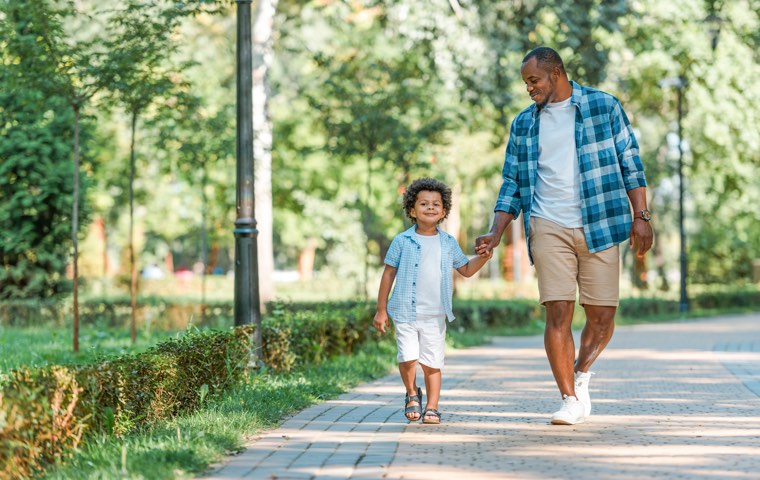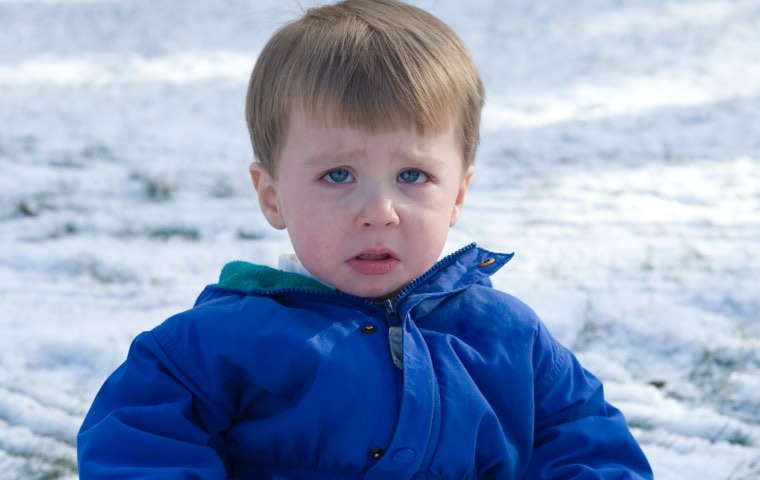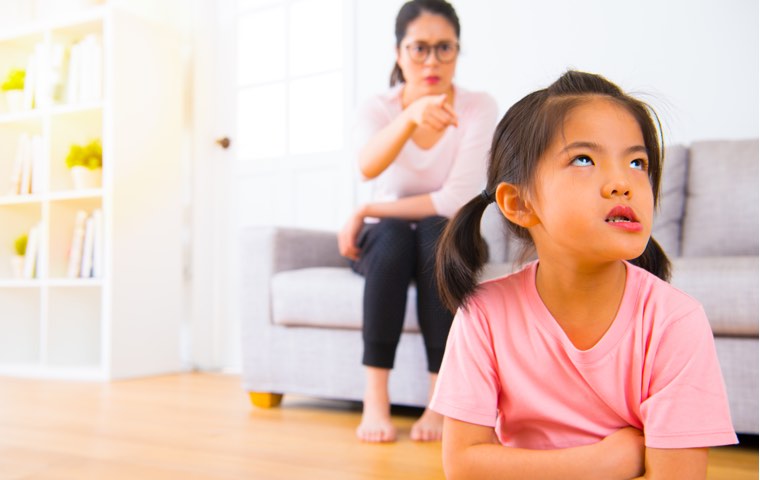While a potty-trained child is something all parents look forward to, potty training itself can be something that a lot of parents dread. A big reason for most: it symbolizes that your baby is growing up! Not only that, but it's sure to come with some frustrations and maybe even power struggles that you have no control over. And it can be downright messy!
It's important to keep in mind that potty training will be a journey as unique as your child and there is no one-size-fits-all way to get the job done. You will know your child is ready to start potty training when you start observing your child doing one or more of these things:
- Staying dry for longer periods throughout the day, even sometimes during naps or overnight.
- Asking for a clean diaper when his (or hers) is wet or dirty.
- Hiding to have a bowel movement.
- Showing a general interest in the bathroom.
- Mimicking the actions of adults.
- Having the ability to understand and follow simple directions.
Your child should also have some basic communication skills - either verbal or nonverbal. He should also have a good grasp on his gross motor skills - things like sitting and walking. Of course, skills vary by age, and other factors such as developmental delays or disabilities may come into play. The average age for potty training to begin is around 22 to 28 months.
Of course, age isn't everything. Timing is also very important. You'll want to begin potty training when life is as normal as possible, meaning no major changes are taking place. Avoid potty training during a move, a divorce, or when bringing a new sibling home. Avoiding these times will help prevent the possibility of regression.
Already know your child is ready for the potty? Skip to the down-and-dirty tips.
Once your child and YOU are ready to start potty training, there are some basic practices to follow to ensure a successful experience.
Potty Training Tips
Prepare yourself.
The first step, which many parents tend to neglect, is to prepare yourself! It's just as important to prepare yourself for potty training as it is your child. Having a newly potty-trained child can be a pretty significant adjustment, so you want to be sure to take some time to mentally prepare for the upcoming changes. You also want to be prepared to fully commit and stay consistent. Once you make the decision to start potty training, you can keep some diapers on hand just in case, but you should avoid switching back and forth between diapers and underwear. It helps to avoid confusion, so your child knows what is expected of him. You also want to have confidence in your child and yourself! A positive attitude goes a long way.
When it comes to potty training, there are a few factors to consider when determining the best approach for your child. Believe it or not, gender is not one of them! There is no difference between potty training boys versus potty training girls. Your child's personality type is mainly what dictates how your potty-training experience goes. Stubborn children or those resistant to change tend to be more difficult to potty train. They will require some additional preparations to get them on board with the process. Easygoing children are easier to potty train. They're able to adapt to the changes that come along with potty training much more quickly. So, before you start potty training, you'll want to identify your child's personality type and the best way he learns.
You will also want to do some research on how to potty train. Try to find some reliable sources to get potty training information.
Finally, create a support system for yourself. Potty training can be a trying time for a family! Surround yourself with a few people who will be there to celebrate your successes, listen to any challenges, and not push unwanted advice.
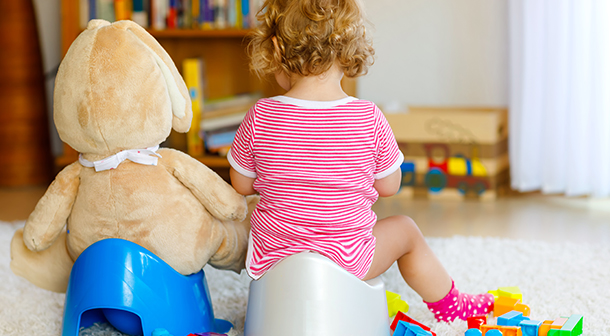
Prepare your child.
In addition to preparing yourself for the changes potty training brings, you'll want to take some time to prepare your child instead of diving in cold turkey.
Plant the seed with your child by:
- Reading books about potty training. Here are some recommendations:
- Potty Power! by Eunice Moyle and Sabrina Moyle
- A Potty for Me! by Karen Katz
- I've Got to Go by Guido van Genechten
- The Saddest Toilet in the World by Sam Apple
- Watching videos about potty training such as:
- Sitting on the Potty by Super Simple Songs
- Potty Song by Little Baby Bum
- The Toilet Song by The Wiggles
- The Daniel Tiger Potty Song
- Allowing him into the bathroom with you when you go. Talk him through the steps of using the bathroom. Start with the feeling your body gets when you need to go and go all the way through flushing and washing hands. Over time, you can begin to ask your child what step comes next.
- Role-play with toys. Children learn up to 40 times faster through play than other teaching methods. Having them play potty with their toys is a great way to get them prepared for using the toilet themselves.
- Counting down the days to no more diapers on the calendar. Three to five days before you are planning on starting potty training, have your child start crossing off the days on the calendar with you. This helps give your child some time to mentally prepare for the upcoming change - and time for you to build his confidence that he can do it!
Another great way to involve your child in the potty-training process and help him feel some control over the situation is to allow him to choose some of his own potty-training supplies. You might want to get things such as new big-kid underwear, flushable wipes, or new bathroom décor. If your child has helped choose some items, he will feel a greater sense of ownership and responsibility. He'll also be more likely to use them properly.
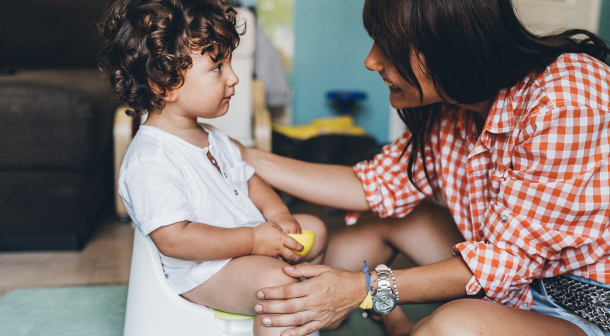
Choose a weekend.
Once you have taken some time to prepare yourself and your child for the potty-training process, you'll want to choose either a weekend or any two to three-day period to introduce the basics of potty use. Remember, this should be an otherwise uneventful time with no major events or changes taking place for your family. You'll want to be able to have at least one parent who is able to focus solely on your child and his potty habits. Since the majority of this time will be spent at home, it is helpful to have some fun activities planned to do with your child so he stays engaged with you. It will also help keep things fun and low-stress. Potty training will be on the forefront for you as your child's potty teacher and coach, but for your child, it will be more about spending some special time with mom or dad while learning how to use the potty. If you're working hard to make your child happy, he will be more likely to work hard to make you happy by using the potty correctly!
During this 3-day potty training method, you can speed up the learning process by keeping your child bottomless, or naked from the waist down. This helps with his awareness of his body and helps you to see any accidents as soon as they start. You may be able to catch some in the potty, which will turn the accident into a success and create a great learning opportunity.
Move any rugs and try to steer clear of carpeted areas if possible.
When your child successfully uses the potty, even if it starts as an accident, you'll want to be sure to acknowledge his efforts with verbal and physical praise as well as a small tangible reward. When praising your child, use specific language such as, "Great job putting your pee in the potty!" or "It makes me so happy when you poop in the potty!" instead of a generic, "Well done!" or "Good work!" A reward such as a treat or a very small toy can also reinforce your child's potty use. Potty sticker charts are a great visual representation of your child's successes and can be very motivating, too.
It wouldn't be potty training without accidents, but it's important to handle them properly so you don't discourage learning. A simple, matter-of-fact reaction is best. For example, "Oops, you peed on the floor. Pee goes only in the potty now." You can also put any poop in the potty and flush it away together. Be sure to never scold or shame your child for having an accident. Instead, put all of your focus on his good potty behaviors.
Many parents will choose to wait and tackle nighttime potty training later. Most children are ready for nighttime training before their parents realize it, but the best time to start differs with each child and family. Staying dry all night is largely a result of hormonal development, but there are things you and your child can do now to start preparing. If you want to start thinking about nighttime potty training, start with these tips to help your child stay dry overnight:
- Limit fluids to four ounces or less within one hour of bedtime.
- Have him wear loose fitting pajamas to bed with no underwear for the first few nights to assist with body awareness.
- Have your child go potty once at the beginning of his bedtime routine and then again just before getting into bed.
- Keep a baby monitor in your child's room so he can call for help. Even if he is in a bed as opposed to a crib, he is still unlikely to go potty on his own during the night.
- Wake your child about fifteen minutes earlier than usual, as he is most likely to need to go potty at this time.
Need parenting help now?
The Texas Parent Helpline is available 24/7.
- Call 833-680-0611
- Chat with us
- Text 833-680-0611
Don't be held hostage by potty training.
Getting out of the house after the first day or two at home is great practice for your child to be diaper-free in more stimulating environments. He needs to be potty trained both in and out of the house, after all! Since children thrive on routines and schedules, the more you alter your lives to accommodate potty training the more uncomfortable your child will be with the process.
Keep your first outing short and low-key, and avoid the car if possible. Try a walk around the block or a picnic in the backyard instead. Be sure to offer praise for staying dry. As your child gets more experienced with his potty use, you can venture out for longer journeys as long as you plan for frequent potty stops. It's also helpful to prepare a potty-training survival kit containing the following items:
- At least two full changes of clothes for your child.
- Wipes.
- Diaper disposal bags or just plastic grocery sacks for wet or soiled clothing.
- Absorbent cloths for wiping up messes.
- Hand sanitizer or cleansing wipes.
- Sticky notes to cover the automatic flush sensor on public toilets.
- Your reward of choice.
Even if you follow all the best practices, sometimes potty training just isn't meant to be for your child at that time. While some kids show the physical and behavioral signs of readiness, yours may not be quite there emotionally. If you don't notice any progress after a few days of solid effort, it is perfectly okay to take a break and revisit things later. This has no reflection at all on your parenting abilities! Potty training can be tough, but once you see how proud your child is as he masters this new skill, it will all be worthwhile.
Happy pottying!



